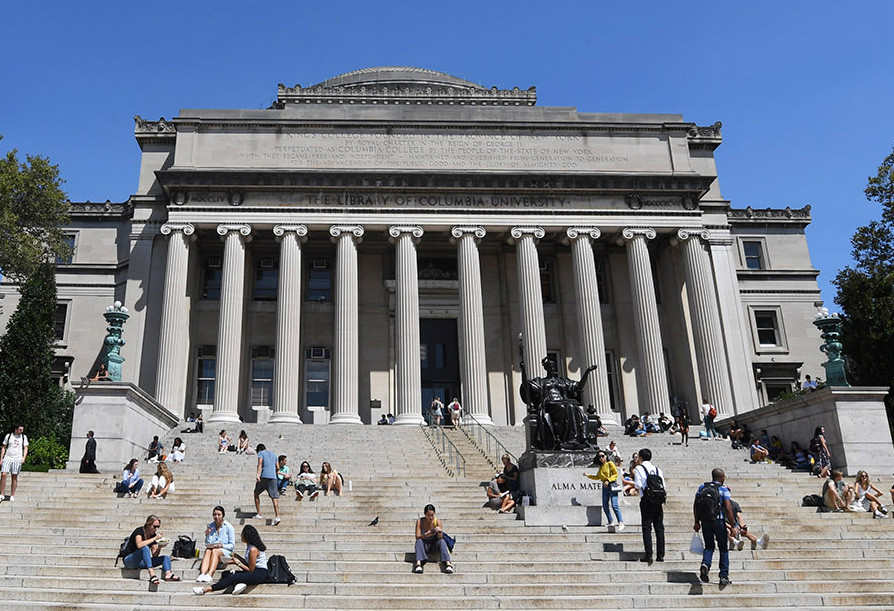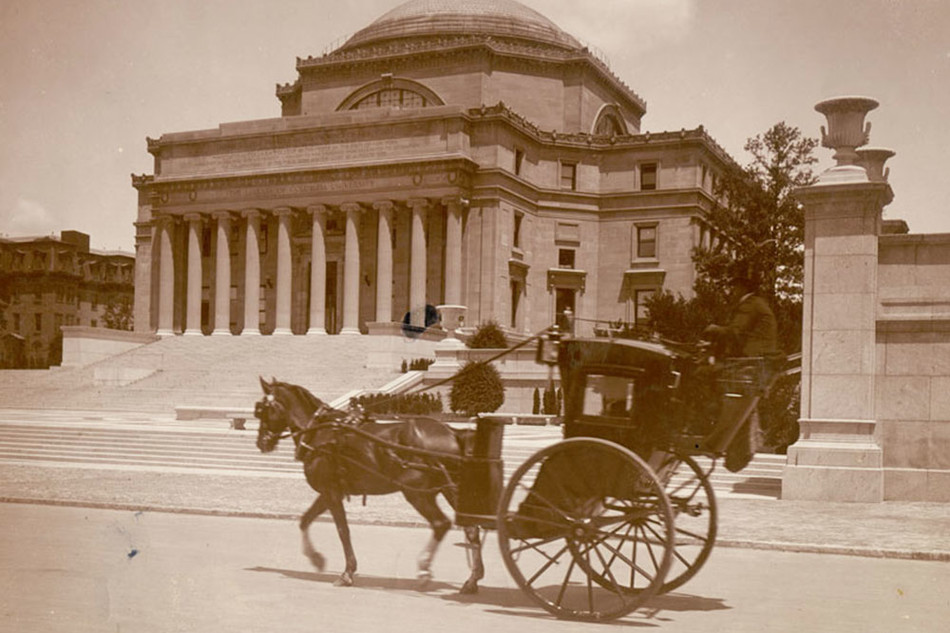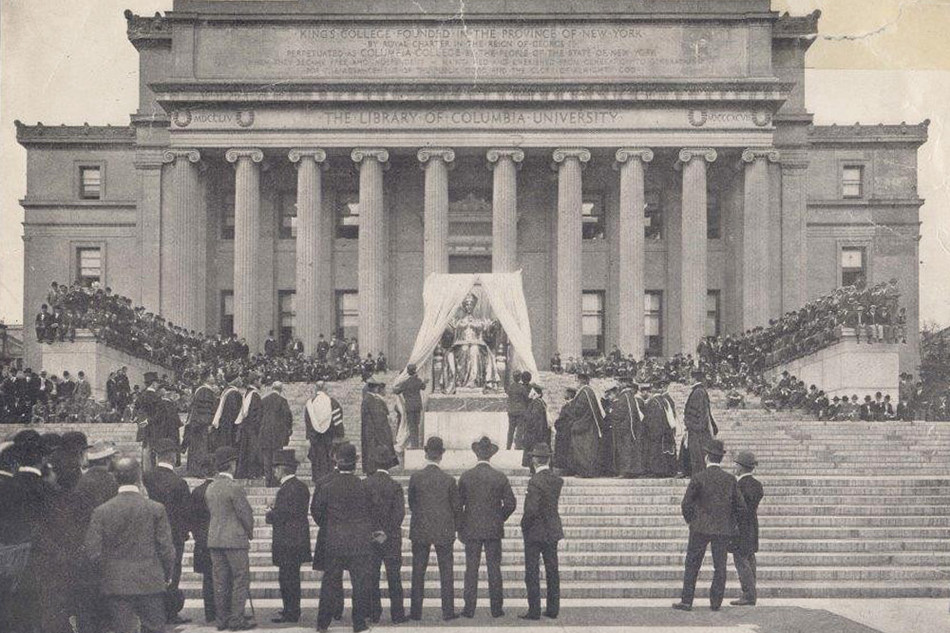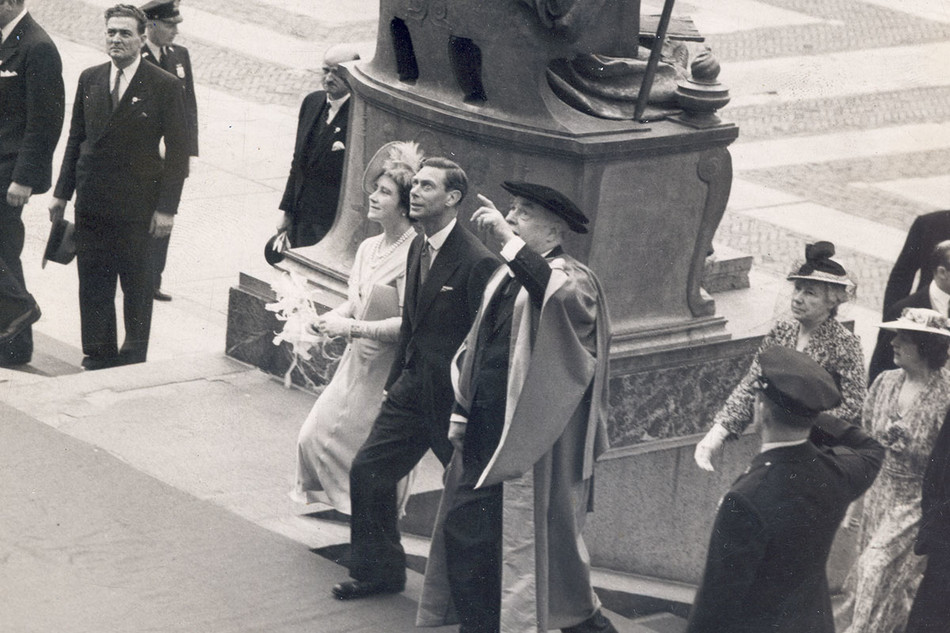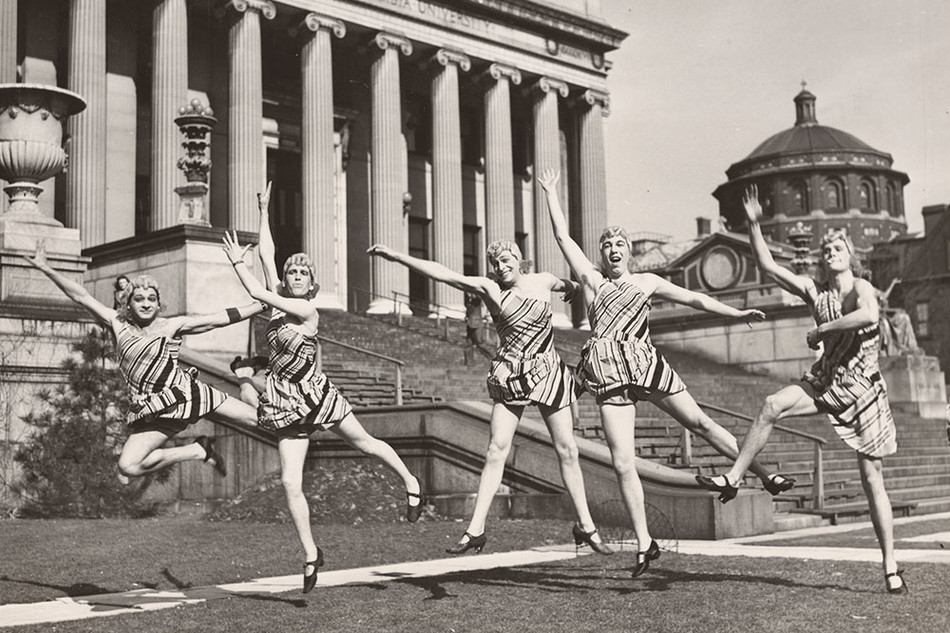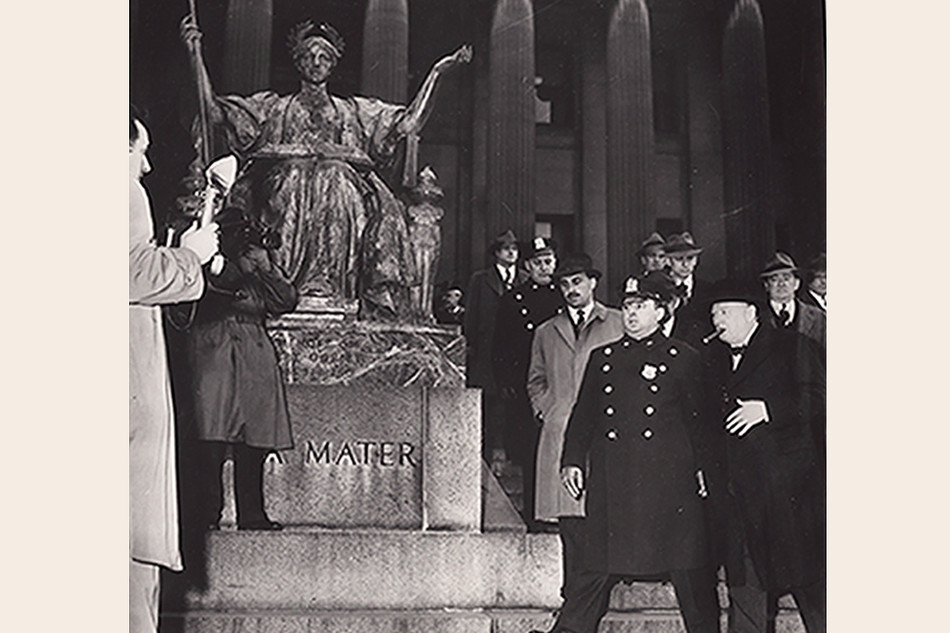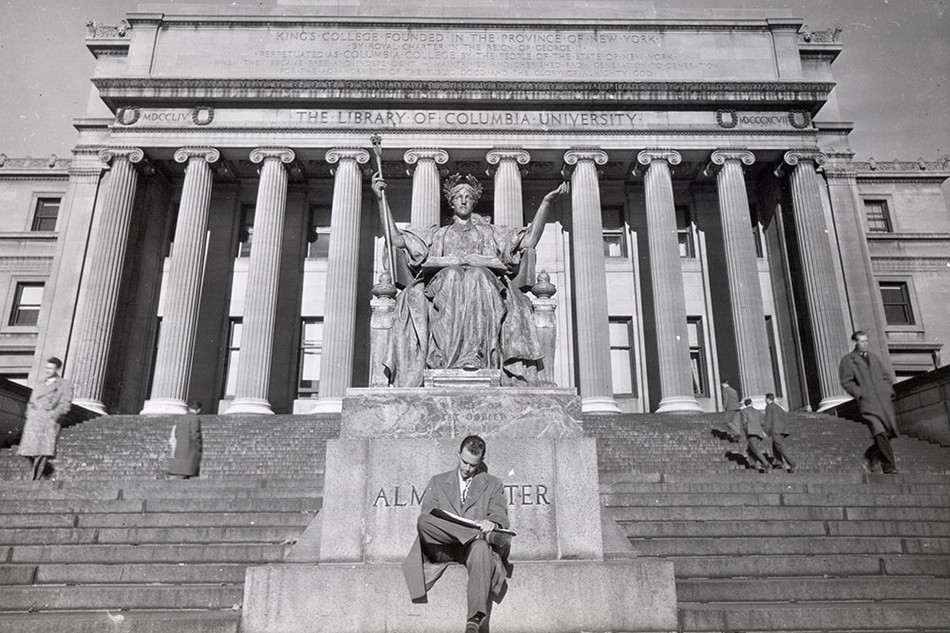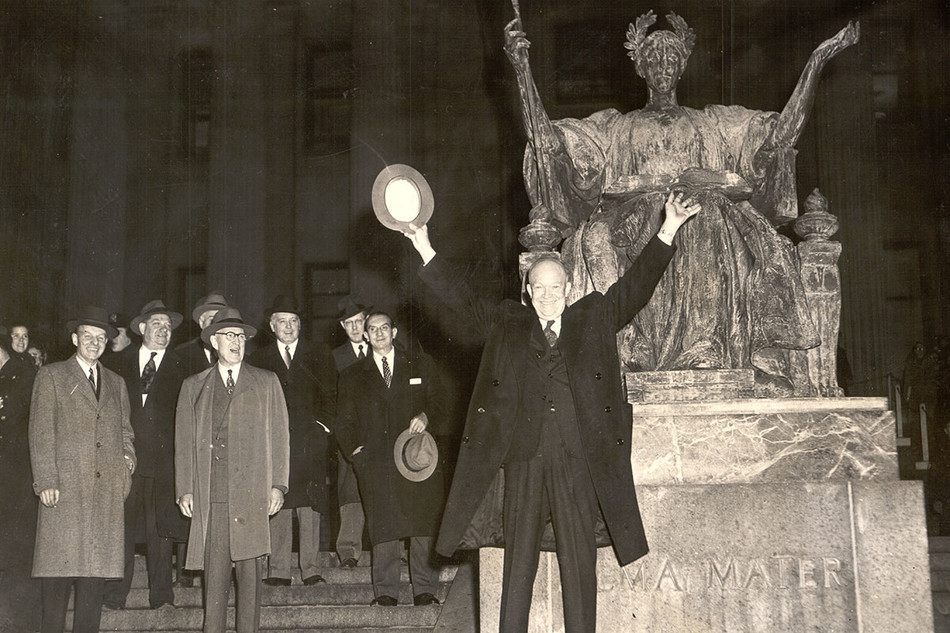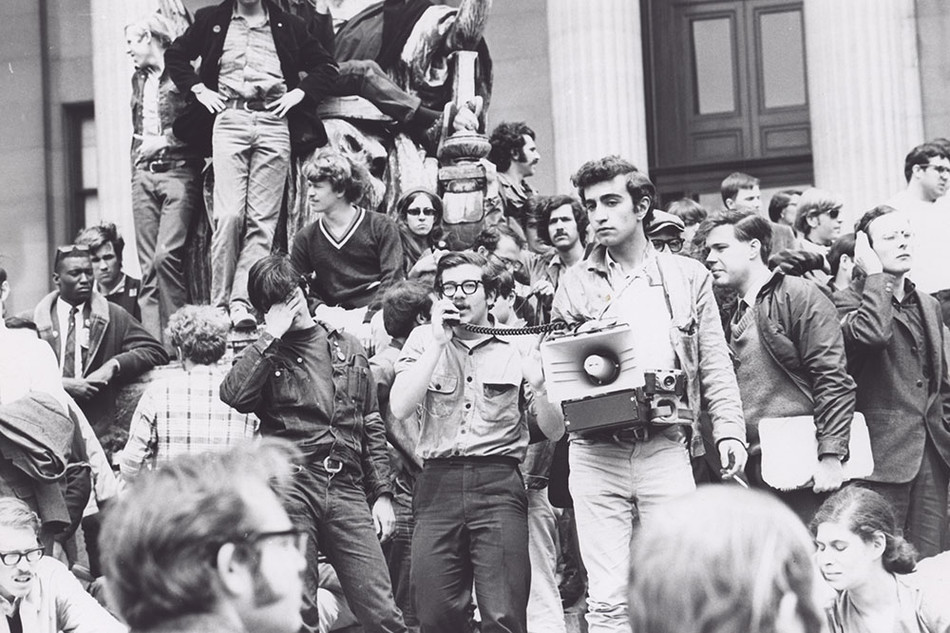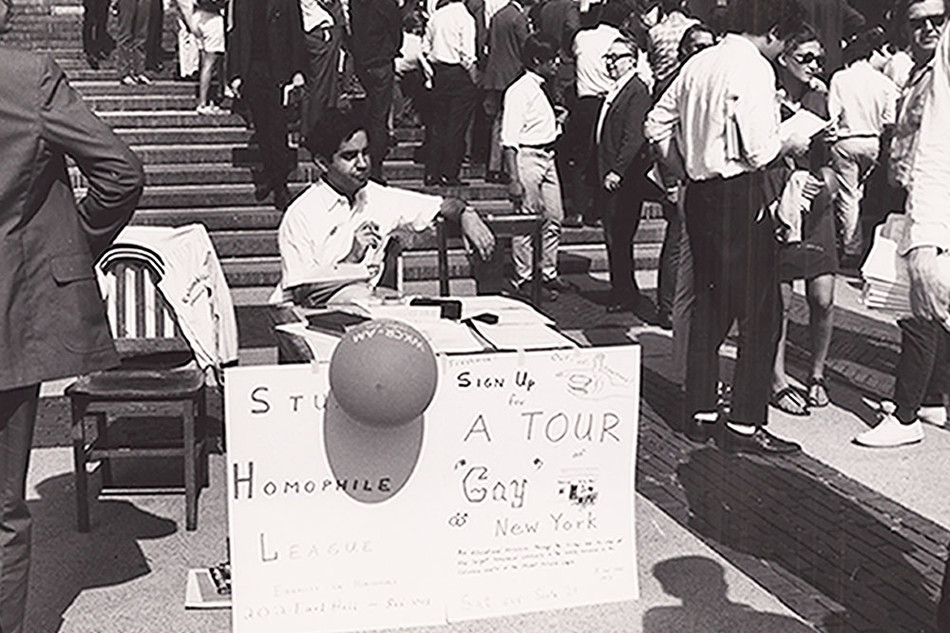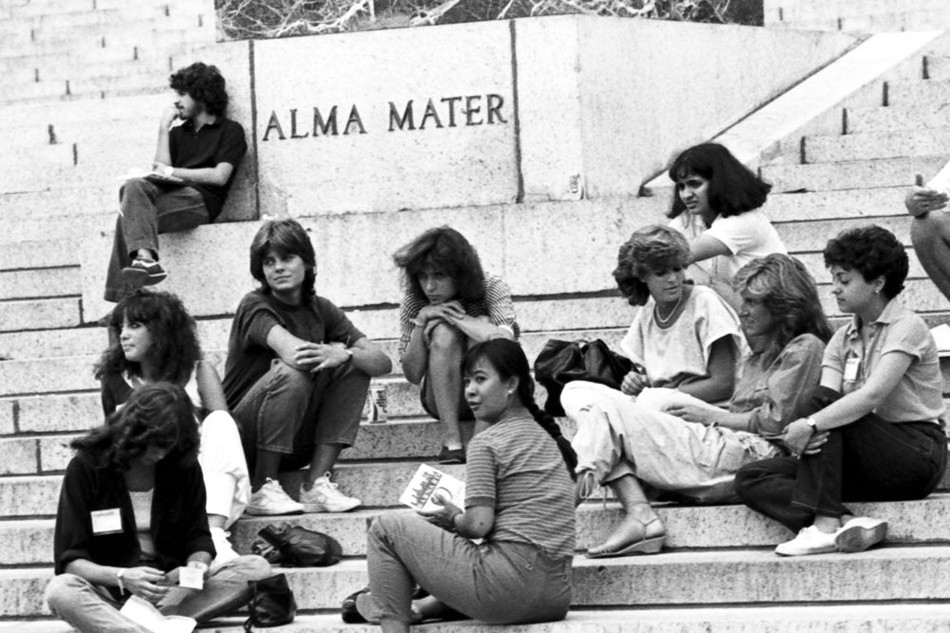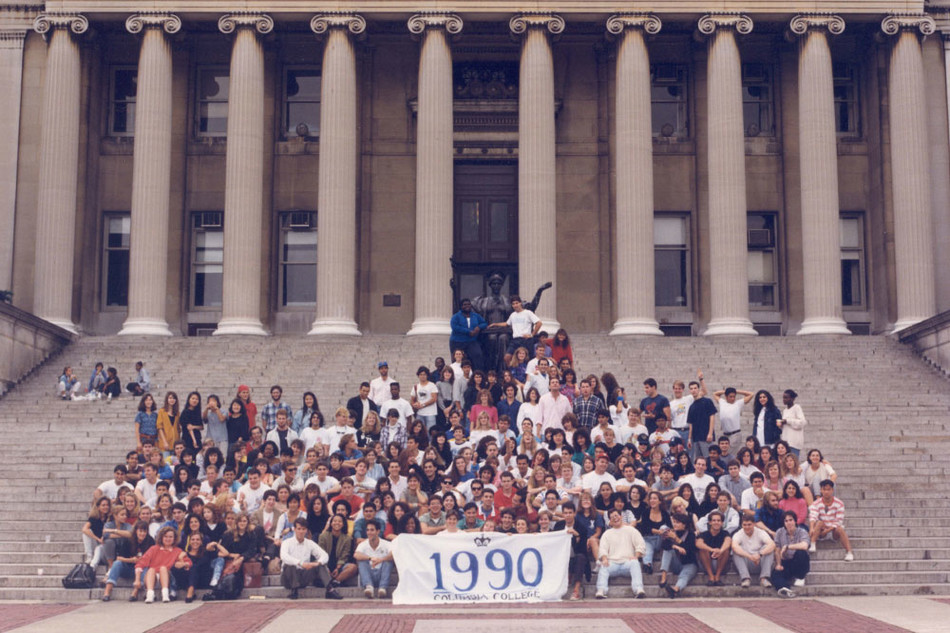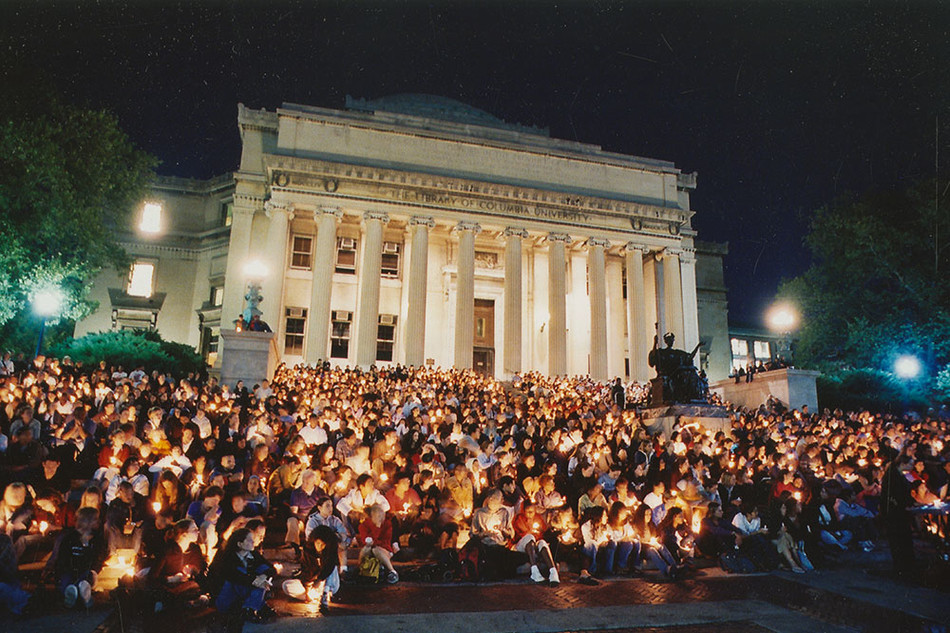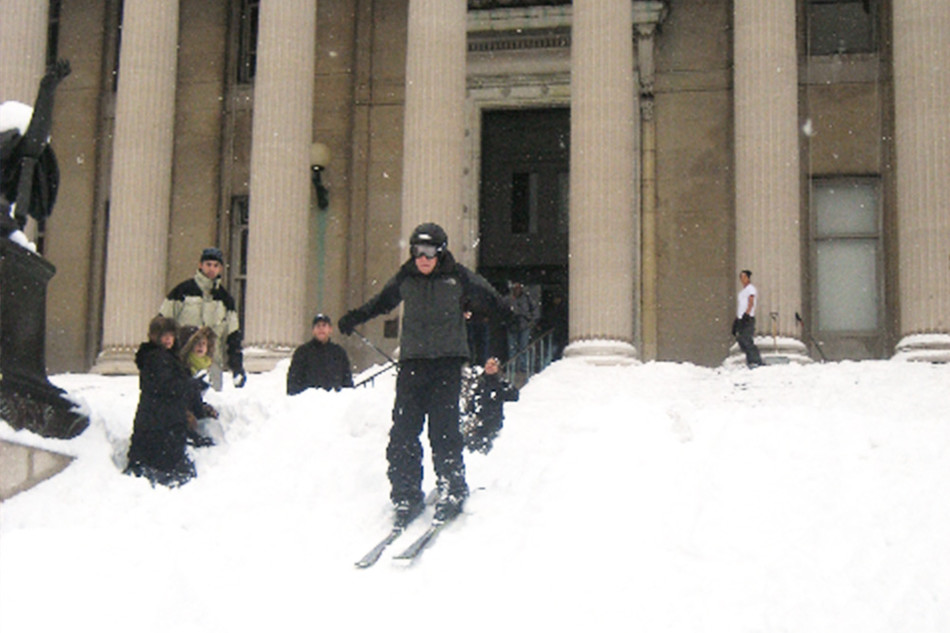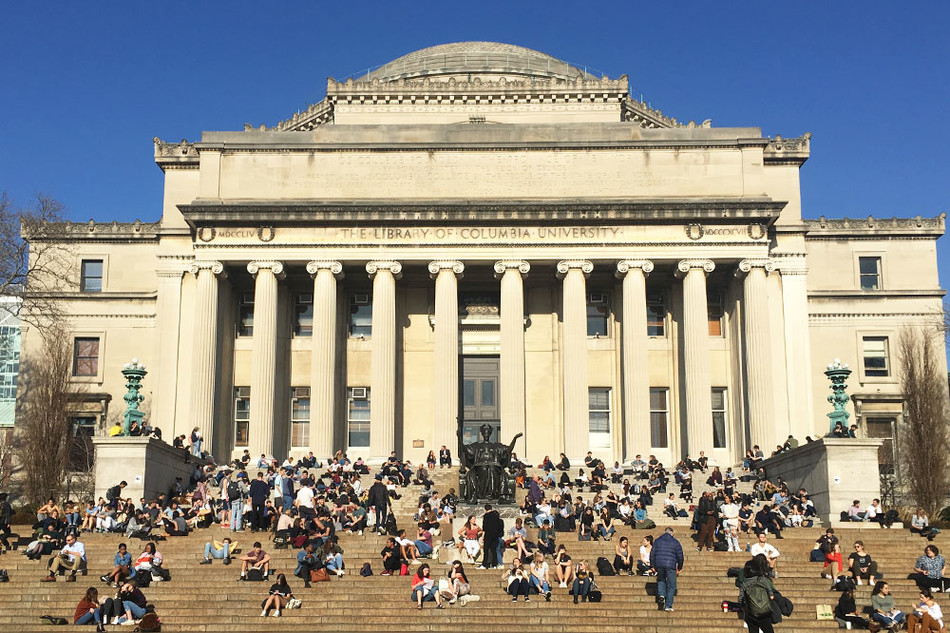This summer, the Low Library steps, known as “Low Beach” for their popularity with lounging students, were closed. It wasn’t a shark scare that cleared this shore — the only waves here come from the hands of reclining students beckoning to classmates on College Walk — but the problem did involve water. Cracks in the uppermost steps had allowed rain and melting snow to penetrate the underlying concrete and drip down into the Public Safety locker room in the basement of Low. “The water was coming in at will,” says Donald Schlosser, assistant vice president of campus operations.
And so, for the first time since 1897, when the building was completed, the top tier of the staircase was dismantled. More than three hundred slabs of granite were removed, catalogued, numbered, and placed on the lawn next to Lewisohn Hall, while another hundred, too damaged to be reused, were swapped out for fresh granite. Work crews laid down waterproofing and extensive steel supports and added a drainage system. “The goal was to stop the leak, correct the steps, level them, make sure they’re set correctly,” Schlosser says.
“The Low steps were a crucial part of architect Charles McKim’s design,” says Andrew Dolkart ’77GSAPP, a professor of historic preservation at Columbia. “He loved the drama of architecture, so he created this incredibly dramatic entrance to the campus. You come in past either Dodge or Kent and view Low obliquely, and then suddenly the view opens up and your eyes go shooting up those flights of stairs to Low Library.”
For 125 years, the Low steps have been a central gathering spot for Columbians, host to rallies, dances, performances, protests, and processions — and, of course, a place to enjoy the simple pleasure of relaxing between classes. In a city with more than a dozen beaches, here is one, at least, where sand doesn’t get everywhere, the water drains quickly, and the sunbathers always have interesting books.
Low steps through the ages
A horse-drawn carriage passes the newly constructed Low Library circa 1897.
Columbia’s iconic Alma Mater statue, sculpted by Daniel Chester French 1913HON, is unveiled in the fall of 1903.
Columbia president Nicholas Murray Butler 1882CC, 1884GSAS gives King George VI and Queen Elizabeth a campus tour in 1939.
Members of the “Pony Ballet,” once a popular campus drag act, rehearse for the 1940 Varsity Show.
Winston Churchill visits campus in March 1946, shortly after the end of World War II, to accept an honorary degree.
Low’s steps have always offered a pleasant place to read between classes — in the 1940s and today.
Outgoing Columbia president Dwight D. Eisenhower ’47HON strikes a pose before his inauguration as US president in 1953.
During the 1968 campus protests, student activists give rousing speeches on the steps.
A member of the Student Homophile League, the first LGBTQ+ campus organization in the United States, signs people up for a “tour of ‘gay’ New York” on Low Plaza circa the 1970s.
In August 1983, members of Columbia College’s first coed class relax on Low Beach.
Students in Columbia College’s Class of 1990 pose for a group photo.
A campus vigil on September 11, 2002, honors the one-year anniversary of 9/11.
The steps are transformed into a ski slope during a heavy snow in February 2010.
An unseasonably warm day in winter 2019 draws crowds to Low Beach.
